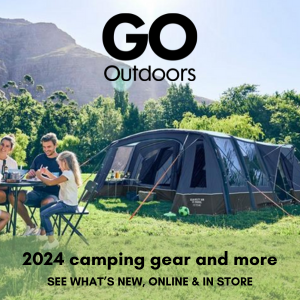CAMPING | 6 Clever Camping Food Hacks
With some clever planning, you can make sure that catering when camping is an absolute doddle. After many years under canvas, we share our top practical camping tips that will help ensure you eat well and breeze through meal times!

1. Plan the shopping
If you’re traveling any considerable distance to set up camp, you may want to think about doing your food shopping closer to site after your tent is up.
You’ll benefit from not having to cram your shopping into an already packed vehicle, but you’ll face the hassle of having to find your favourite superstore in a strange location. Even big brand supermarkets have regional variances, so don’t count on having the same options you are used to at home.
If you have fussy kids or special dietary needs, then it can make sense to purchase your shopping before hand.
2. Suitable food storage
Plan transport and storage of perishable goods carefully to prevent food spoiling – cheap cool boxes typically available in supermarkets and on the high street, will struggle to keep the contents cool for 12 hours, and by 24 hours everything inside will be at an ambient temperature. To avoid the hassle of having to find shops once set up on site, or being limited to a small selection in the campsite shop, consider investing in a heavy duty extreme cooler, some of which are capable of keeping ice frozen for 5 days, even in the height of summer.
Sugar lumps are a fun way to avoid spilling granulated sugar in transit.
Do remember basics such as sugar, coffee, ketchup and seasoning – these store cupboard staples are often overlooked and will be sorely missed on the campsite. Purchase little plastic storage pots and decant some essentials ready to take with you. You’ll also find it useful to take some cling film and food storage bags for keeping things fresh once opened.
 Sistema Dressing to Go £3.99 @ Lakeland
Sistema Dressing to Go £3.99 @ Lakeland
3. Buffets are beautiful
Having at least one meal a day of help-yourself style finger-foods can severely reduce the amount of food prep, serving and clearing up you’re going to have to deal with. Provide hand wipes and napkins for cleanliness and cover serving dishes to keep flies away.
 Large Popup Food Cover £5.99 @ Lakeland
Large Popup Food Cover £5.99 @ Lakeland
A selection of cheese, crackers and dips is a firm favourite of ours, add a crusty loaf, butter and some cured meats for a delicious and super easy, camping buffet.
4. Save time on main meals
Plan main meal preparation carefully around how many pots (and what size pots!) you can actually have on heat at any time. If you’re lucky enough to have a stove or cook fire in camp, get a big stockpot on early for a lovely slow casserole and a reduction of prep time immediately prior to the meal.
As a rule, try to stick to one-pot recipes. We always prep food at home first whenever possible, so veg is cleaned and chopped and meat trimmed before we even arrive on site, which makes life much easier and also means you don’t have to compromise on the quality of the meals you eat.
Save time on serving by providing communal bowls on the main table for your guests to help themselves from.
5. Brace yourself for the washing up
Unless you’ve gone completely disposable for the trip, you’re going to have some grubby dishes after each meal! With most of us used to a dishwasher at home, washing up can be a real drag, especially without easy access to hot running water.
 Suse’s favourite enamel washing up bowl!
Suse’s favourite enamel washing up bowl!
- Before you sit down to eat get the dirty pans back on a low heat full of water: they will simmer away and get everything nice and loose ready for washing without much effort at all
- Have a big bowl for washing up in: take a big pack of cheap non scratch scouring pads and some ecologically friendly washing up liquid. Even if there is a sink on site, plugs have a habit of going missing. We use a big enamel bowl that doubles as a serving dish when clean
- Scrape the plates well and wash up early before food congeals or sticks
- Don’t use boiling water straight from the kettle on plastic dishes, they might warp or buckle
- Don’t soak wooden dishes or boards for the same reason
- Take more tea towels than you think you will need, and take good ones. We never use tea towels as such, instead we use Ikea hand towels for absorbency and size
6. The inevitability of rubbish
Find out in advance if you can dispose of or leave your bags on site, otherwise you will either have to take it home with you or invest in a quick trip to the local tip before you pack up.
Pop up rubbish bag holders are essential! They stop your trash from spilling out onto the grass and help to keep wasps away if they have a lid or if you cover it. Garden popup bins may be tougher and last longer than products aimed specifically at campers.
 Silverline pop up sack from Amazon
Silverline pop up sack from Amazon
- If you’ve got a shady spot, use it: it will cut down the smell
- Cheap rubbish bags are a false economy: use tough bags!
- Always check the site policy on rubbish, recycling and disposable nappies if necessary
- Always recycle if you can, so make an effort to separate your trash if possible
- Always leave the site at least as clean as you found it
- GEAR | Weird Fish Lulu Waterproof Jacket – Review - April 2, 2019
- GEAR | Osprey Sylva 5 Women’s Multi-Sport Pack – Review - January 17, 2019
- GEAR | New LifeStraw Go With 2-Stage Filtration Review - October 17, 2016














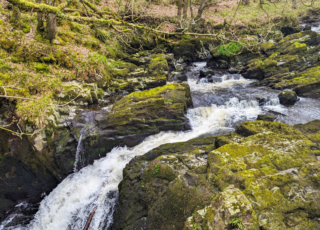

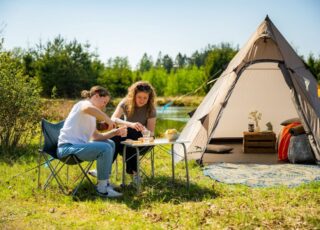

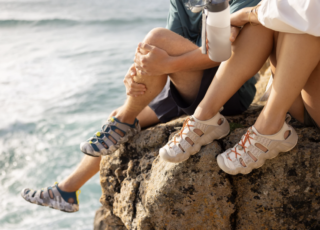

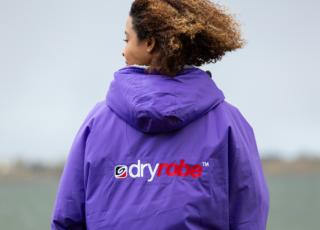
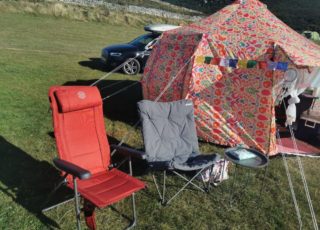
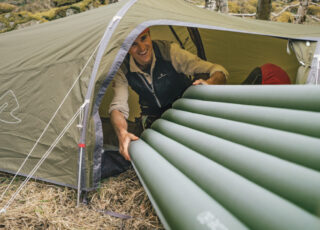
![CAMPING | Here’s How To Stay Warm In Your Tent – Warm Camping Tips [Updated 2024]](https://www.campingwithstyle.co.uk/wp-content/uploads/2024/02/shell0816_photorealistic_realistic_photo_of_the_inside_of_a_c_dd26c3c4-c779-4081-85b0-72e66a81b03b_1-320x230.png)
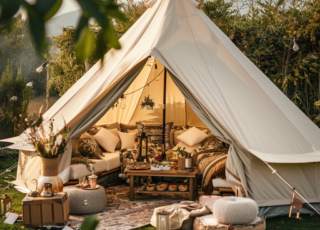
![GEAR | The Best Warm Sleeping Bags For Spring Camping Trips [Updated March 2024]](https://www.campingwithstyle.co.uk/wp-content/uploads/2024/02/10-best-warm-sleeping-bags-2024-320x230.png)
